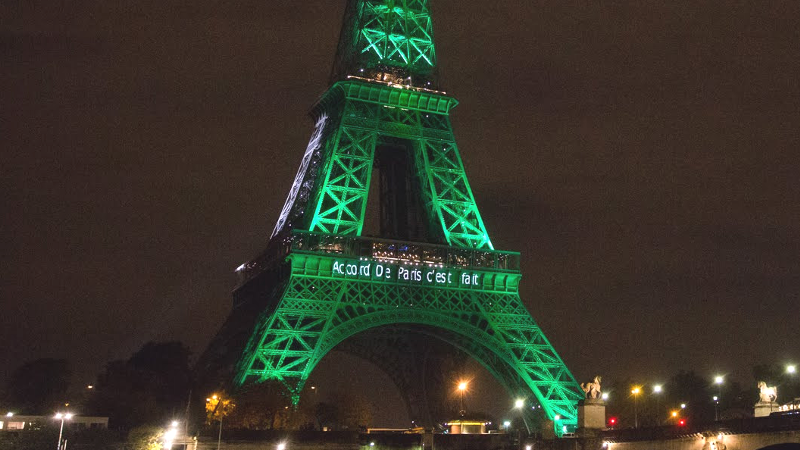Two large oil exporting nations are among three countries that have not yet ratified the 2015 Paris climate agreement, while the United States has given notice to quit the accord.
Iran and Libya – both among the 14-member Organization of Petroleum Exporting Countries (Opec) – as well as Yemen have not ratified the agreement.
The deal has been formally endorsed by 194 of 197 nations, including all G20 countries. But the United States is set to quit the accord for a second time under the presidency of Donald Trump.
After taking office on 20 January 2025, Trump signed an executive order to start the process of pulling the US out of the Paris Agreement. It will take a year for the withdrawal to be formalised.
Trump had already taken the US out of the deal during his first term in the White House, with effect from November 2020. His successor Joe Biden rejoined the pact on his first day in office, 20 January 2021, and formally re-entered the global treaty 30 days later.
Climate news in your inbox? Sign up here
Eritrea is the most recent country to ratify the deal, having done so on 8 February 2023.
Turkiye and Iraq signed up in late 2021, while South Sudan, the world’s newest country which is torn by conflict, ratified the deal on 23 February 2021.
Before that, Angola ratified on 12 August 2020, Kyrgyzstan on 18 February and Lebanon on 5 February.
The three countries yet to ratify the accord account for around 2% of global greenhouse gas emissions, according to the European Commission’s emissions database.
Iran (2%) is currently the top emitter among the nations that have not yet ratified. The others represent a far smaller share of global emissions: Libya (0.16%), and Yemen (0.03%).
International agreements are initially signed to signal intent to comply, but only become binding through ratification. That can take an act of parliament or some other formal acceptance. Different countries have different processes. Former US President Barack Obama used disputed executive powers to ratify the Paris accord in 2016.
Once ratified, the agreement commits governments to submit their plans to cut emissions. Ultimately they will have to do their bit to keep global temperatures well below 2C above pre-industrial times and to “pursue efforts” to limit them further to 1.5C.
As a major producer of oil and natural gas exporter, Iran’s energy sector accounts for around 77% of its total emissions. Despite its fossil fuel empire, the country has developed a renewable energy industry thanks to a number of national plans and funds.
In November 2015, it pledged to reduce its emissions by 4% by 2030, compared to a business as usual scenario. Its national plan said cutting greenhouse gas emissions “will be facilitated and speeded up, only in the absence of any forms of restrictions and sanctions.”
Iran’s reluctance to ratify stems largely from its dependence on oil, complicated by the collapse of the July 2015 nuclear deal between Tehran and other major powers led by Washington.

Windmills in Manjeel, Iran (Photo: Ali Madjfar)
This article was updated on 07 October 2021 after Turkey ratified the agreement and on 3 November 2021 after Iraq ratified the agreement. It was also updated on 02 October 2024 to recognise Eritrea’s ratification in February 2023, and on 21 January 2025 after Donald Trump started the process of withdrawing the US from the agreement.
